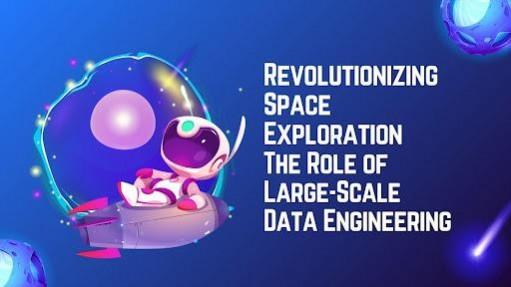
In this modern era, space exploration is undergoing a remarkable transformation, driven by advancements in large-scale data engineering. The ability to capture, process, and analyze vast amounts of data is revolutionizing how missions operate beyond Earth's atmosphere. Siddhartha Parimi, a leading expert in this field, explores the latest innovations in space data management and emerging computing technologies.
The New Era of Space Data Handling
Modern space missions generate unprecedented amounts of data. From high-resolution imagery to telemetry, the volume of information collected daily necessitates robust engineering frameworks. Recent improvements in distributed data processing have increased efficiency by 47%, enabling real-time decision-making. Compression technologies now achieve ratios of up to 10:1, optimizing bandwidth utilization.
Advanced Sensor Networks for Data Collection
The integration of sophisticated sensor networks is critical for capturing mission data accurately. Today's spacecraft employ Development Flight Instrumentation (DFI) systems, supporting thousands of real-time measurements per mission phase. These networks utilize radiation-hardened sensors capable of withstanding extreme cosmic environments while ensuring data integrity.
The Evolution of High-Performance Space Computing
Traditional space computing systems were limited in processing power, but recent advancements have dramatically improved their capabilities. High-performance computing (HPC) architectures now enable spacecraft to process data at speeds of up to 200 MIPS while consuming minimal power. Fault-tolerant computing elements ensure system reliability, with mean time between failures exceeding 100,000 hours.
Real-Time Processing and Autonomous Operations
Autonomous operations are becoming increasingly crucial in deep-space missions. Modern spacecraft feature real-time processing systems capable of executing commands with sub-millisecond latencies. Onboard scheduling algorithms manage multiple concurrent tasks, ensuring uninterrupted mission continuity.
Innovations in Fault Management and System Recovery
Reliability is paramount in space missions. Advanced fault detection systems now identify and isolate errors within milliseconds. The implementation of Triple Modular Redundancy ensures that spacecraft can continue operations despite encountering single-event upsets. Sophisticated error detection and correction codes maintain operational stability.
The Rise of Edge Computing in Space
One of the most transformative innovations in space data engineering is edge computing. By processing data closer to its source, spacecraft can significantly reduce transmission delays and optimize bandwidth usage. These advancements are beneficial for deep-space probes and autonomous planetary rovers, where communication delays can impact mission success.
Quantum Computing: The Next Frontier
Quantum computing holds immense potential for space data engineering. Quantum-inspired algorithms have demonstrated efficiency in optimizing satellite constellations and data routing. The integration of quantum-enhanced machine learning accelerators is enabling faster analysis of astronomical data.
Enhancing Space Communications with Optical Technologies
Data transmission remains a major challenge for space exploration. Optical communication systems are emerging as a solution, offering higher data transfer rates than traditional radio frequency methods. These systems improve link margins and maintain exceptionally low bit error rates.
The Impact of Large-Scale Data Engineering on Commercial Space
The commercial space sector is benefiting immensely from advancements in data engineering. Modern satellite constellations achieve near-global coverage, supporting diverse industries such as telecommunications and Earth observation. Automated data pipelines process terabytes of imagery and sensor data daily.
The Road Ahead: Future Trends in Space Data Engineering
As space missions grow in complexity, the demand for advanced data engineering solutions will continue to rise. Future spacecraft will leverage radiation-tolerant quantum sensors and ultra-fast processing architectures, enabling prolonged deep-space exploration with minimal human intervention.
In conclusion, the field of space data engineering is at the forefront of modern innovation. The groundbreaking advancements discussed by Siddhartha Parimi highlight the critical role of cutting-edge data infrastructure in overcoming the challenges of space missions. As technological capabilities evolve, space agencies and private enterprises will leverage these innovations to push the boundaries of human knowledge and expand our presence beyond Earth.












!['Valentine's Week in Parliament'? : Saugata Roy, June Malia's cosy conversation amid house session goes viral [Watch]](https://data1.ibtimes.co.in/en/full/828484/valentines-week-parliament-saugata-roy-june-malias-cosy-conversation-amid-house.jpg?w=220&h=138)




